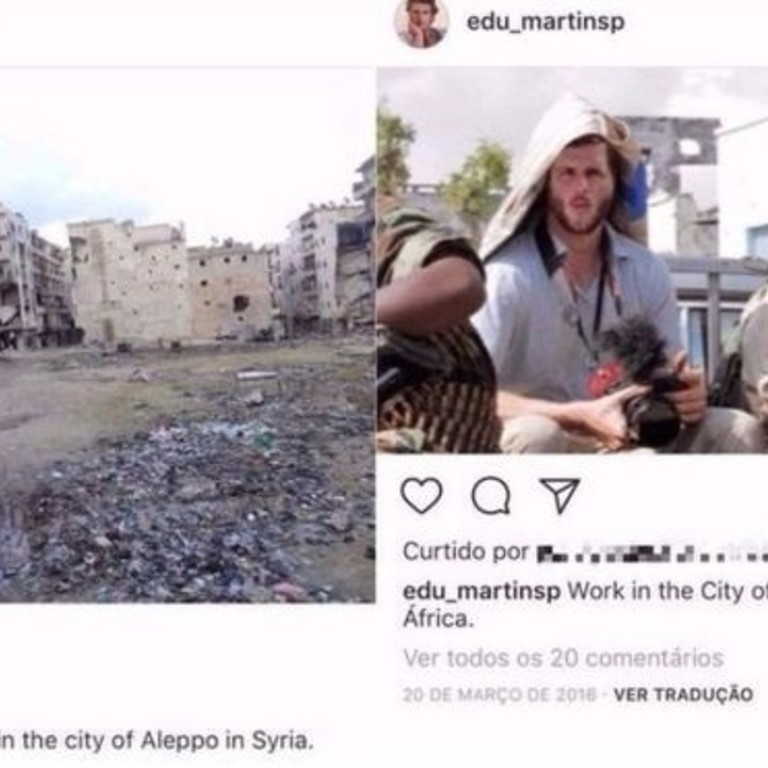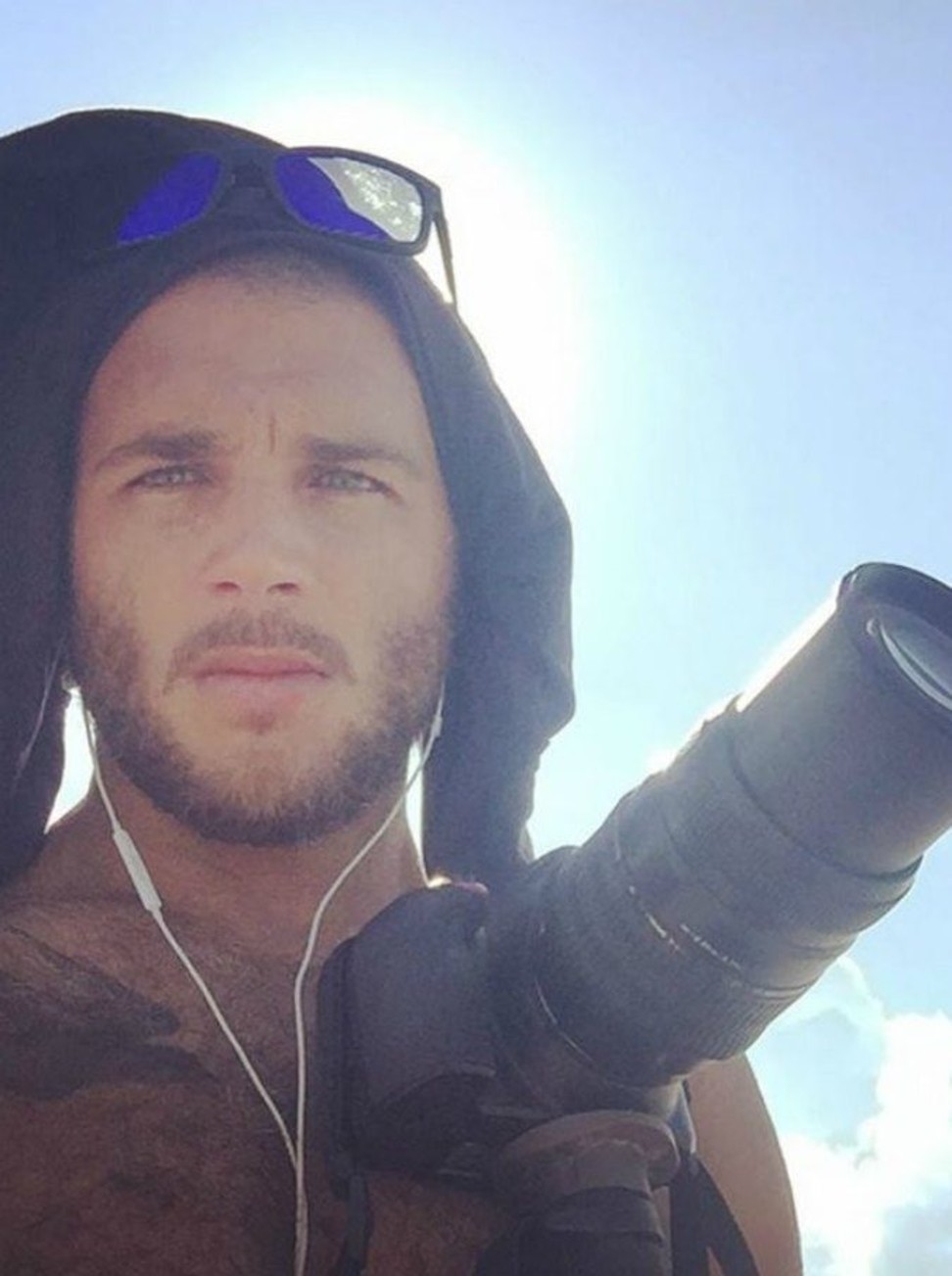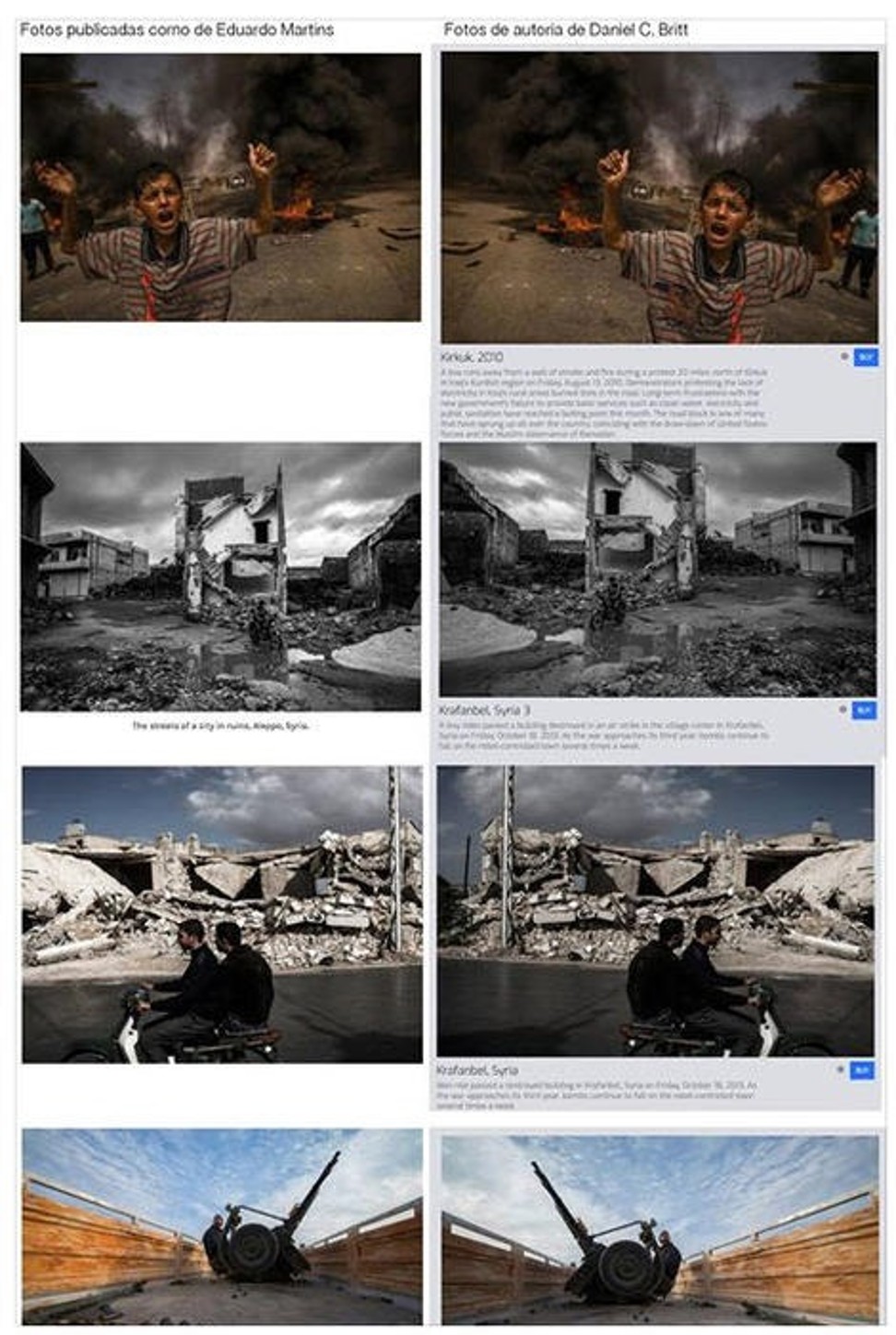
This handsome and heroic surfing war photographer never existed, but news media fell in love with him
‘Eduardo Martins’ had bylines in publications around the world, but his face belonged to a British surfer, and his photos were taken by others
The striking images in the portfolio of the photographer going by the name of “Eduardo Martins” captured the strife of refugees in Iraq and children in Gaza, of families fleeing destroyed towns in Syria.
The handsome blue-eyed Brazilian portrayed himself as an heroic photojournalist who risked his life on the front lines of war to “show the public the reality of these places” and move viewers to “make a difference,” he said in one interview. His name appeared alongside images published in international media outlets such as the Wall Street Journal, Vice and BBC Brasil. He claimed he did humanitarian work for the United Nations. He had almost 125,000 Instagram followers, including revered photographers worldwide.

As if the 32-year-old’s supposed career wasn’t compelling enough, his backstory made it better.
The man who called himself Martins said he was diagnosed with leukaemia at 18 and spent seven years bedridden in intensive care. “It was chemo or college,” he told a Brazilian surfing website. He said his father died of liver failure.
All of this, it turns out, was false.
When a Brazilian BBC correspondent became skeptical of Martins’s story, she began to unravel the truth. For years, the person calling himself Eduardo Martins was stealing and using someone else’s photographs, according to a BBC investigation. Many of the images he sent to photo agencies and news websites were actually taken by other professional photographers, such as US photojournalist Daniel C. Britt.
The real name of the impostor is still unknown.
The photos were often inverted or tweaked just enough to sneak through software meant to identify plagiarism, the BBC reported. Many of them were taken by photographers in different locations than the captions purported.

Hepworth-Povey’s face was photoshopped onto the body of a photographer in places such as Aleppo and Somalia. In fact, those photographs were taken about five years ago in benign settings.
Most of the photographs were from Hepworth-Povey’s Facebook account, which he deleted three years ago after a fake profile of him emerged on the social network.
“It’s just mad,” Hepworth-Povey said. “It’s like seeing an evil twin, like an identical nemesis ... I’m surprised no one really saw my face sooner.” He added that taking his face out of beachfront photographs and editing it into devastated war zones “just was so inappropriate.”
The revelations in the BBC story have stunned members of the international photojournalism community, and caused a number of agencies and websites to take down Martins’s “work.”
BBC Brasil, which had initially published a story about his photography career, removed the story and issued an apology to readers, the BBC reported.
In a statement to the Guardian, Getty Images said it had removed all images credited to Martins.
The UN Refugee Agency confirmed to the BBC that Martins was not an employee. Various other organisations he claimed to have worked for said they did not recognise him.
Britt, the photographer whose images were allegedly stolen by Martins, said in a statement to a Mashable reporter that many of the photos legally belonged to Playboy magazine.
“Once a story is done, I don’t really follow my content online, so I had no idea my photos were being resold by a social media geek for the last two years,” Britt said. “Eduardo Martins, whoever he is, was clever enough to slip past the editors of several magazines and The Wall Street Journal... I am just disappointed that Eduardo Matins bastardised the photo captions and gave people yet another reason to distrust the news.”
BBC Brasil reported that at least six young women said they had romantic online relationships with Martins. None of them met him in person.
Some of these women have reached out to Hepworth-Povey in the days since the BBC investigation, he said. They approached him “slightly traumatized,” telling Hepworth-Povey they believed they were speaking to the person who looked like him for the past six months.

